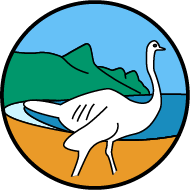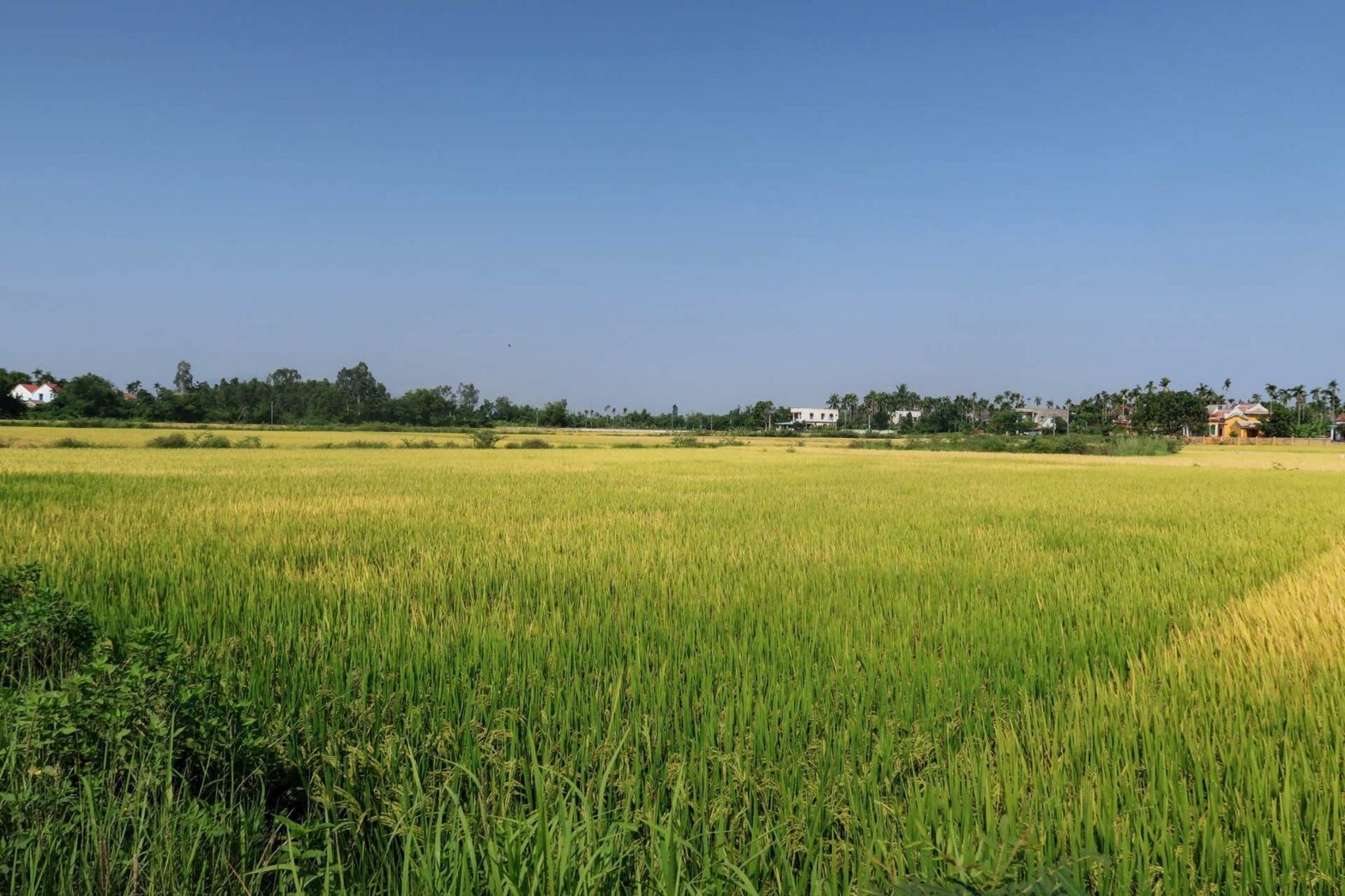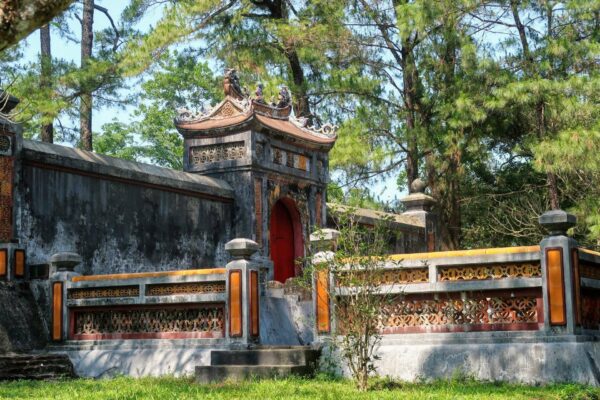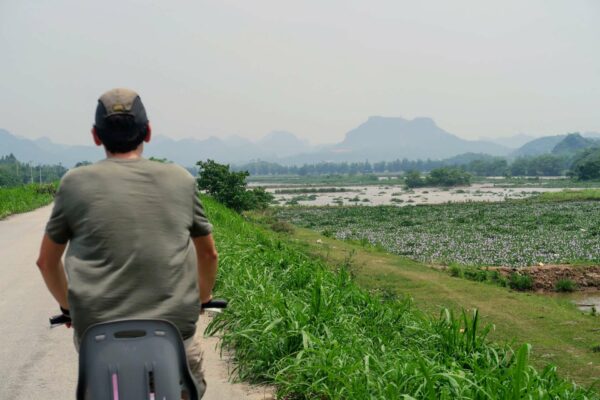By Vicky · Published Sep. 14th, 2022
When you buy through links highlighted with an asterisk (*) on this site, we may earn a small affiliate commission at no cost to you.
Follow this cycling tour around Cam Kim, an idyllic island in the river by Hoi An. Cycle through rice fields and see the real Vietnam.
Page Contents:
Map of Hoi An Cam Kim Cycling Tour Route
Get the route by downloading the .gpx or .kml file below. For navigation with Maps.me on your mobile phone, simply download the .kml file and open to add it to the Maps.me bookmarks.
This is a self-guided cycling tour. It’s mainly paved with a few short sections of good dirt road. If you don’t want to go alone, book a guided cycling tour of Cam Kim Island*.
Renting a Bicycle in Hoi An
It’s easiest to stay at a hotel that rents bikes. We stayed at Hoi An Odyssey Hotel*, a lovely place that had free bicycle rental available. It’s always best to email the place you’re staying in advance to check with them if they hire bicycles, and reserve them if possible. Make sure to specify you would like a bicycle that you cycle yourself, rather than a scooter or motorbike.
Hoi An Cam Kim Cycling Route (19 km)
This cycle route starts by the river in front of the Japanese Covered Bridge. First cycle across the bridge with lanterns to Hoi An Island. Turn right on the other side, then left at the T-junction. Take the first right and cycle 500 metres to reach the bridge across to Cam Kim Island.
Cam Kim Island
Cross over this bridge, which involves some climb uphill and cycling over the strange metal surface. You’ll pass over some land, and then some still water again, before reaching the island proper. Turn immediately right after the bridge to cycle along by the water. There are some nice little lanes here, with a mix of paved and dirt surfaces.
Wind your way along the small lanes. It doesn’t really matter exactly which roads you take but you want to turn in a circle to the left. Take a right and head through some fields towards some water. Turn left before the water to continue cycling through some lovely rice fields.
When you get to a T-junction, cycle right to reach the next part of Cam Kim Island. Continue straight on and then left to cycle next to the water again. Keeping close to the river, you’ll soon come to a bridge across to another, smaller island. You can see fishing nets drying out of the water and some little fishing boats.
A Smaller Island & Tropical Palms
Cross the bridge to cycle a loop of the quiet island. You might see rice being dried on the roads – make sure not to cycle over it! After you’ve seen this island, return to Cam Kim Island.
Once back across the bridge, turn left and immediately right. Soon you’ll cross a bridge over some languid water, surrounded by tropical palms and cool thatched structures.
To Kim Bong Carpentry Village
After the bridge turn head across towards the main river on the other side of the island. Turn left along a fairly main road, and then take a right to the Kim Bong Carpentry Village. There are several workshops here with people carving away to make beautiful wooden sculptures.
Return to the main road and cycle onwards and to the right. You’ll pass some more rice fields and eventually reach the edge of the water. Cycle left and you’ll soon arrive back at the bridge from Kam Cim Island to An Hoi. Once across, turn right and take the first left to the bridge back to the mainland. The Japanese Covered Bridge and the end of this cycle ride is about 500 metres to your right.
End of the Hoi An Kim Cam Cycling Tour
This completes the Hoi An Cam Kim Cycling Tour. For another fun cycle ride, explore our route around the Royal Tombs of Hue. Or further north, check out our Ninh Binh Top Highlights Cycling Tour. If you enjoy cycling, explore our cycle rides in Bali or around Angkor Wat.
Useful things for a holiday in Vietnam
- Travel Insurance: we use SafetyWing*, it’s simple to buy online and they have a downloadable letter proving you have travel insurance which includes Covid-related issues
- Travel Debit Card: we have Wise Cards* which allow you to cheaply convert most currencies into Vietnamese Dong. You can then pay by card within the country for no extra fees, or withdraw cash from an ATM.
- We booked train travel in Vietnam through 12GoAsia*. They charge a few extra dollars in commission, but to book directly on the official website you must have a Vietnamese credit card.











